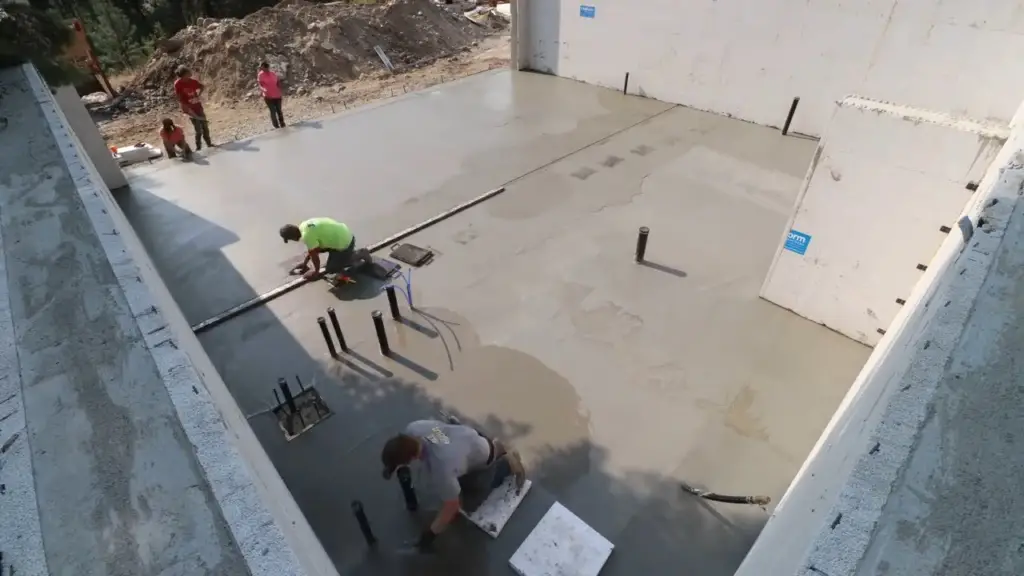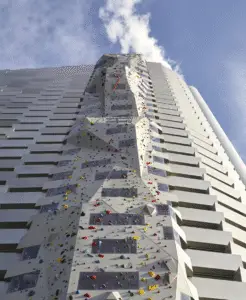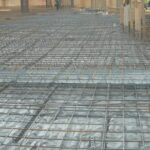When it comes to building your dream home, one of the fundamental decisions you’ll face is choosing the right construction material.
Among the myriad options available, residential concrete stands out as a reliable and versatile choice.
In this comprehensive guide, we will delve into the comparisons between residential concrete and other popular construction materials, weighing the pros and cons to help you make an informed decision for your home.
- 1. Durability: The Concrete Advantage
- 2. Environmental Impact: Going Green with Concrete
- 3. Cost Considerations: Balancing the Budget
- 4. Versatility in Design: The Aesthetics of Concrete
- 5. Construction Speed: The Need for Speed
- 6. Insulation Properties: Staying Comfortable Year-Round
- 7. Maintenance Needs: Long-Term Care Considerations
- 8. Decorative Possibilities: Elevating Aesthetics with Stamped Concrete Contractors

1. Durability: The Concrete Advantage
Concrete is renowned for its exceptional durability, making it a stalwart contender in the construction industry. Unlike wood, which is susceptible to rot, or steel, which can corrode, concrete withstands the test of time. It is resistant to weathering, pests, and natural disasters, providing a robust foundation for long-term structural integrity.
2. Environmental Impact: Going Green with Concrete
Concerns about environmental sustainability have led many homeowners to explore eco-friendly construction materials. While concrete production does contribute to carbon emissions, advancements in technology have paved the way for more sustainable practices. Additionally, concrete’s durability reduces the need for frequent replacements, minimizing its overall environmental impact compared to materials with shorter lifespans.
3. Cost Considerations: Balancing the Budget
Cost is a crucial factor in any construction project. Concrete often proves to be a cost-effective choice in the long run due to its low maintenance requirements and durability. While initial construction costs might be higher compared to some materials, the reduced need for repairs and replacements can result in significant savings over time.
4. Versatility in Design: The Aesthetics of Concrete
While concrete is often associated with a utilitarian aesthetic, modern construction techniques have expanded its design possibilities. It can mimic the appearance of various materials, offering versatility in achieving different architectural styles. However, materials like wood and certain metals may still provide a more natural or contemporary aesthetic that appeals to specific design preferences.
5. Construction Speed: The Need for Speed
The speed of construction is a critical consideration, especially for those eager to move into their new homes. Concrete construction can be time-consuming due to curing periods, whereas materials like steel may allow for faster assembly. Understanding your timeline priorities will play a pivotal role in selecting the most suitable material for your residential project.
6. Insulation Properties: Staying Comfortable Year-Round
Efficient insulation is crucial for maintaining a comfortable indoor environment. Concrete’s thermal mass can help regulate temperatures, but it may not match the insulating capabilities of materials like foam or wood. Homeowners in extreme climates should carefully weigh insulation requirements when deciding on the most appropriate construction material for their residences.
Like Us on Facebook!
7. Maintenance Needs: Long-Term Care Considerations
The maintenance demands of different construction materials vary significantly. Concrete generally requires minimal maintenance, primarily consisting of occasional inspections and repairs. Wood, on the other hand, may necessitate more frequent attention, including pest control and refinishing. Understanding the long-term maintenance commitments associated with each material is vital for ensuring the continued well-being of your home.
Subscribe Us on YouTube!
8. Decorative Possibilities: Elevating Aesthetics with Stamped Concrete Contractors
When exploring the aesthetics of construction materials, the realm of decorative possibilities becomes a crucial consideration. Stamped concrete emerges as a game-changer, allowing homeowners to impart a personalized touch to their spaces. Stamped concrete contractors bring an array of design options, enabling the replication of natural materials like stone or brick with the durability of concrete. This not only enhances the visual appeal of your residential project but also adds a unique charm that may be challenging to achieve with other materials.
If the aesthetic dimension holds significant weight in your decision-making process, consulting with stamped concrete contractors can open up a world of creative possibilities for your home’s exterior and interior surfaces.
Conclusion: Making the Right Choice for Your Home
In the residential construction arena, the choice between concrete and other materials boils down to a careful consideration of your priorities, preferences, and long-term goals. Concrete offers unmatched durability and can align with diverse architectural styles, but it’s essential to weigh this against factors such as construction speed, cost, and maintenance requirements.
Ultimately, there is no one-size-fits-all answer. Your decision should reflect a comprehensive understanding of your specific needs and an appreciation for the unique qualities each construction material brings to the table. Whether you opt for the timeless strength of concrete or the warmth of wood, making an informed choice ensures that your home is not just a structure but a lasting embodiment of your vision and lifestyle.






















